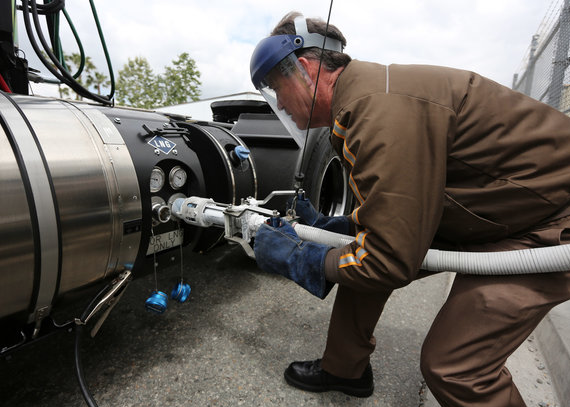Group Pushes for Shift Away from Conventional Truck Fuels
Environmental group SAFE, (Securing Americas Future Energy) has released a brief analyzing the potential fuel savings of the National Highway Traffic Safety Administration (NHTSA) and Environmental Protection Agency’s (EPA) proposed Phase 2 fuel economy program for medium- and heavy-duty vehicles and finds that the “new Phase 2 truck rule would save nearly 800,000 barrels of oil per day by 2040, reducing effects of global oil market volatility on this critical sector and improving American energy security.”
SAFE noted that MD and HD vehicles currently are “responsible for more than 20 percent of transportation oil demand.” If further observed that the rule as proposed would create significant fuel savings for the sector, but could be improved by incentivizing the use of alternative fuels.
Medium- and heavy-duty vehicles represent the fastest growing component of U.S. transportation oil demand, projected to increase from approximately 2.8 mbd consumed today to 3.4 mbd in 2040. Because oil currently powers 92 percent of the transportation sector, strengthening fuel economy standards for these vehicles is a critical part of any effort to enhance U.S. energy security.
SAFE’s analysis finds that, in its current state, the proposed Phase 2 standards would reduce oil demand in the medium- and heavy-duty sectors by nearly 500,000 barrels of oil per day (bpd) by 2030 and 800,000 bpd by 2040. Furthermore, SAFE believes these numbers can be increased through the inclusion of incentives for alternative fuel technologies.
The group’s president and CEO, Robbie Diamond, continued by stating: “Our trucking industry, in particular, is regularly exposed to the impacts of this oil price volatility that affects companies ability to do business and make investments.” SAFE recommended that the deployment of alternative fuels represents the best long-term solution to the dangers posed by oil dependence.











